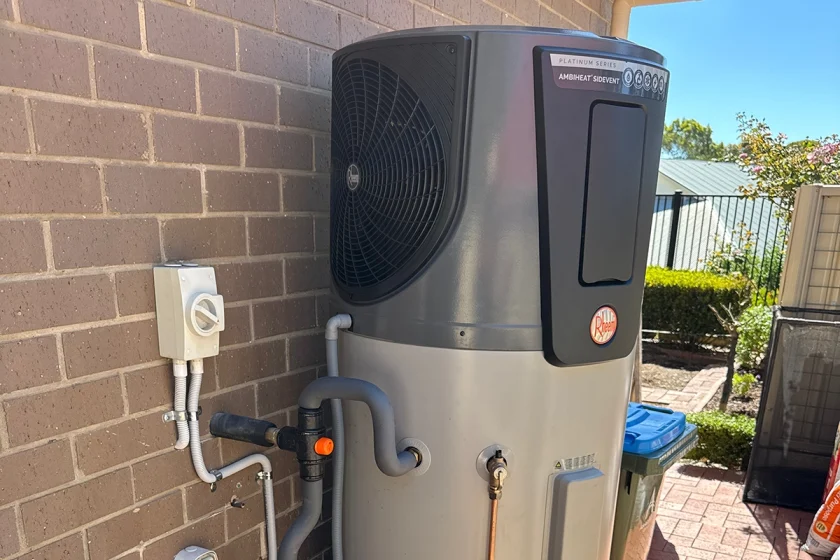
How to Choose the Best Hot Water System for Your Household
Hot water is one of life’s essentials, but heating it can account for around 25% of the energy used in the average Australian home. With energy prices rising and a bewildering number of technologies on the market, choosing the right water heater is a decision that can pay dividends in lower bills, reduced emissions and better comfort. In this article we compare the main types of hot water systems and share tips to help you decide which is best for your household.
1. Assess your household’s needs
Before you start looking at brands or models, take stock of your usage patterns and constraints.
- Household size and hot-water demand: A one-person household with modest needs might consume less than 50L per day; a family of four could use 200L or more. Larger households often benefit from systems with high output or storage capacity.
- Energy sources available: Do you have natural gas, LPG or only electricity? Do you have (or plan to install) rooftop solar panels?
- Space and access: Heat-pump and solar systems require room for outdoor units or roof collectors. Instantaneous gas heaters can be wall-mounted.
- Tariffs and off-peak rates: Electric storage heaters can be run on off-peak tariffs, but peak-rate electricity makes them expensive.
- Budget and lifespan: Upfront cost varies widely, from a few hundred dollars for small electric tanks to several thousand for solar or heat-pump systems. However, long lifespans and lower running costs often make the investment worthwhile.
Compare the main types of hot water systems
Electric storage
Traditional electric storage heaters heat a tank of water using an element. They’re cheap to buy but expensive to run. Sustainability Victoria estimates that a small electric storage heater on a peak tariff costs about $440 per year for a one-person household. Even on an off-peak tariff the cost is still higher than modern alternatives. In areas with high off-peak tariffs or no off-peak option, upgrading makes sense.
Gas storage and instantaneous
Gas storage systems heat water in a tank using a gas burner. Running costs are lower than electric storage, but they still experience heat loss from the tank. For a one-person household a gas storage heater costs around $385–$445 per year, while a high-efficiency gas instantaneous unit (approx. 7-star equivalent) costs about $190 per year. Instantaneous (continuous-flow) models are compact and only heat water when needed, but they require a minimum gas flow rate and may struggle with multiple simultaneous taps.
Heat-pump water heaters
Heat-pump systems act like reverse-cycle air conditioners: they extract heat from the air and transfer it to the water. They use about a quarter of the electricity of a standard electric tank. For a one-person household, a heat pump heater water heater on a peak tariff costs around $125 per year. Heat pumps work in most climates, though efficiency falls slightly in very cold weather. They have higher upfront costs, but federal and state rebates can offset this, and running costs are among the lowest.
Solar hot water
Solar systems use roof-mounted collectors to heat water directly or via a heat-exchange fluid. Some systems include an electric or gas booster for cloudy days. A solar hot-water system with a natural gas booster costs $80–$100 per year for a single user. Solar hot-water can reduce energy use by up to 65 %, while heat-pump systems can achieve up to 73 % energy savings. Solar requires north-facing roof space and has higher upfront costs but delivers substantial long-term savings.
3. Consider environmental and health benefits
Upgrading to an efficient system isn’t just about bills. Reducing energy consumption lowers greenhouse-gas emissions. Heat-pump and solar systems typically have lower emissions than gas or electric storage. Continuous-flow and modern storage heaters also maintain safer temperatures, reducing the risk of bacteria such as Legionella, and can provide better water pressure thanks to reduced sediment buildup.
4. Look for rebates and incentives
Federal and state governments offer incentives for solar and heat-pump hot water. In South Australia, Small-scale Technology Certificates (STCs) reduce upfront costs, and additional rebates may be available for low-income households. Paterson Plumbing stays up to date with current incentives and will help you navigate the paperwork.
5. Get professional advice and installation
Choosing the wrong system can lead to cold showers, high bills, premature failure or even worse, scalding. A licenced plumber can calculate your hot-water demand, assess your available energy sources and recommend the best system for your circumstances. At Paterson Plumbing we supply, install and service electric, gas, solar and heat-pump water heaters. We’ll explain running costs, organise any rebates and ensure your new system complies with Australian standards. We also offer emergency repairs and regular servicing to maximise the lifespan of your investment.
Conclusion
There’s no one-size-fits-all answer to hot-water systems. A small apartment on an off-peak tariff might suit a compact electric tank, while a growing family with solar panels could save hundreds of dollars a year by switching to a heat pump or solar system. By considering your household’s size, energy sources, climate and budget, you can choose a system that delivers reliable hot water, lower bills and reduced environmental impact. For personalised advice and professional installation in Adelaide and surrounding areas, contact Paterson Plumbing – we’re here to help you make a smart investment in comfort and efficiency.
Blocked Drain Repaired – No Digging Required We were called to site for a blocked drain that had no clear access point. To reach the problem, we removed the old toilet and quickly cleared the blockage. On inspection, we found a damaged section of drain that needed repair. Rather than digging up the client’s backyard, we relined the pipe with a 2-metre liner, sealing over the damaged area and reinforcing the junction. This provided a permanent fix with minimal disruption. The bathroom was back in full working order within 48 hours, saving the customer from the mess, time, and cost of excavation




